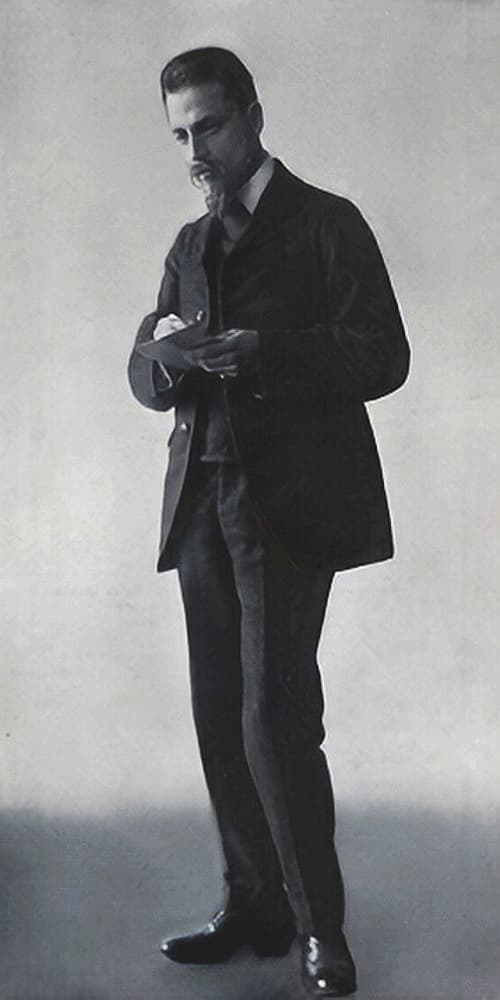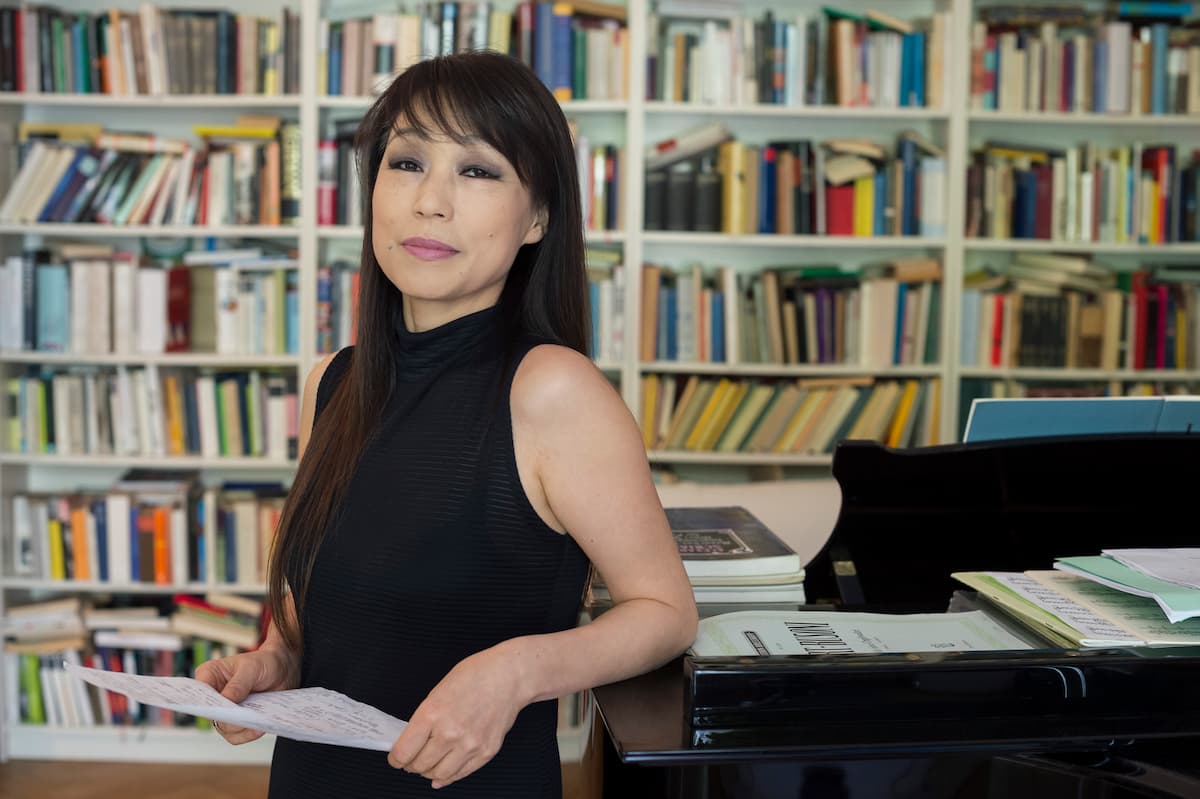The unending surprise of the war in the Ukraine has taken the world over. Supposed to have been a job completed in under a week, the war that Russia brought to its southern neighbor, starting on 24 February 2022, has been dragging on now for more than 600 days. Responses around the world have included a nearly complete stoppage of Russian musicians’ performances in the West.
Musicians often have a difficult time during crises such as this. Performances have to be carefully considered and repertoire examined. Some international competitions, such as the Eurovision Song Contest, have banned Russian performers. Ukrainian singers no longer sing in Russian.
For composers, reaction to the situation has been equally thoughtful. For American composer Stanley Grill, his response has been a musical sigh. A long musical sigh.

Stanley Grill
His 2022 work, A Symphony of Sighs, is part of an ongoing set of pieces he groups as ‘Music for Ukraine’, including his 2022 work for baritone and chamber orchestra, “Заповіt” (Testament), which sets an 1845 poem by Ukrainian poet Taras Shevchenko yearning for Ukrainian independence; a set of Ukrainian folk songs for string quartet (2023); and a work for string orchestra entitled When the war ends, we will dance again.
Symphony of Sighs is strong, declarative, and, at the same time, mournful and melancholic. It’s more like a long meditation on the stupidity of war and the unnecessary perils in which we place ourselves in our desire for more. His use of texture and colour in the work make it particularly poignant and you can imagine yourself hearing this in a large concert hall and just sitting and thinking about the world and what we’ve done.
Stanley Grill: Symphony of Sighs
Joining the Symphony of Sighs on this album is his 2020 work, Die erste Elegie, for soprano and orchestra. We asked Mr. Grill about the work, and he said rather than thinking about it as an orchestral work or a vocal work, he really considered it a concerto for soprano and orchestra. Die erste Elegie is a setting of the first elegy from Rainer Marie Rilke’s Duino Elegies. Rilke’s set of 10 elegies were written between 1912 and 1922, and Mr. Grill has broken up the first elegy into separate songs based on the verses. It is a perfect complement to the Symphony of Sighs.
Die erste Elegie, a poem of nearly 100 lines, breaks into 5 verses and each of those verses has been set separately by Mr. Grill. The composer noted that he first read Rilke when he was young and didn’t understand the poet at all. As he’s grown and read more and more of the poet’s work with a greater understanding of the world, he’s grown to appreciate the poet’s unique vision. Where other poets’ writing seems to get bogged down in cliché or images of the familiar, Rilke asks his readers to look beyond the visible into the invisible. For Mr. Grill, one of the most striking lines in the first stanza was ‘Ein jeder Engel ist schrecklich’ (Every angel is terrible), and it was in that contrarian vision he knew he had the poet he had to set. The only other poet he sees as having anything akin to Rilke’s vision is William Blake.

Ludwig Oskar Grienwaldt: Rainer Maria Rilke, 1913
The Elegie came together in those long days during the COVID lockdown, and he returned to the Rilke Duino Elegies. He realized that the first elegy could be broken down by verse as each had a different feeling. Each verse is a different length (25 lines – 28 lines – 15 lines – 17 lines – and 10 lines) which also helped him get the feeling of 5 different movements for his ‘concerto’. He felt the work was akin to Barber’s Knoxville: Summer of 1915, op. 24, or Richard Strauss’ Vier lezte Lieder in its use of voice and orchestra.
The work ends with Schließlich brauchen sie uns nicht mehr (After all, they don’t need us anymore) commenting on the connection between the living and the dead that continues long after death – those invisible memories, or perhaps they’re angels, continue to provide comfort. The note of spiritual optimism in Rilke is perfectly captured in the musical setting.
Stanley Grill: Die erste Elegie: Schließlich brauchen sie uns nicht mehr
We asked Mr. Grill what was coming up next and he said that he’d just finished recording some of the Ukrainian music mentioned above and other works were being performed: Concerts for Compassion in New York was performing his string quartet; the Ukrainian Music Project, which was collecting Ukrainian music by local musicians and those of the Ukrainian diaspora, had recorded Testament, and When the war ends, we will dance again was just recently recorded.
Also upcoming are recordings of his 2021 piece The Mystic Trumpeter, based on Walt Whitman’s poem of the same name; Against War, a 2018 suite of songs from the 2003 anthology Poets Against the War, edited by US poet Sam Hamill, with the war in question being the US with Iraq; and Everything Passes, a collection of Zen poetry by Peter Levitt, William Blake, and 17th-century Japanese poet Matsuo Bashō, recognized as the master of the haiku.

Yoshitoshi: 100 Aspects of the Moon: The poet Matsuo Bashō meets two farmers celebrating the mid-autumn moon festival, 1891 (Tokyo Metropolitan Art Museum)
With all of this going on, we were happy to catch Mr. Grill at a moment when he could tell us all that he was up to – a busy composer indeed!
For more of the best in classical music, sign up for our E-Newsletter
Find out more about Die Erste Elegie (imusician.pro) and Stanley Grill.



